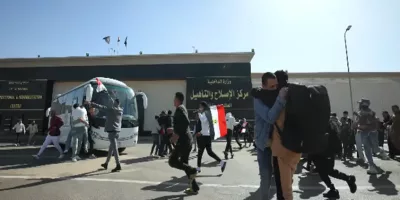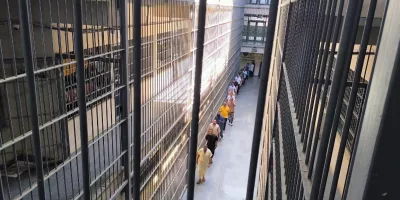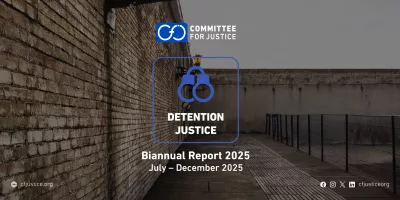On Friday, April 4, the United Nations Human Rights Council in Geneva adopted—without a vote—Resolution A/HRC/58/L.29, submitted by the Government of Mexico on March 24, 2025, regarding the mandate of the Special Rapporteur on Counter-Terrorism.
Previously, the Committee for Justice (CFJ) had submitted several recommendations regarding the draft resolution prior to its adoption. Following its adoption, the Committee conducted a detailed analysis of the resolution, based on a comprehensive review of its text and the recommendations submitted by legal experts and human rights activists regarding the draft.
– Positive Points in the Resolution Text:
The draft resolution successfully incorporated several key proposals submitted by the CFJ. It explicitly approved the extension of the mandate of the Special Rapporteur on the promotion and protection of human rights while countering terrorism for an additional three years. The text retained the same terms of reference outlined in the previous resolution 49/10, ensuring continuity of work under the established legal frameworks.
In another positive development, the resolution included a clear paragraph encouraging the Special Rapporteur to continue active engagement in the “Global Compact to Coordinate Counter-Terrorism,” while affirming the importance of such engagement in strengthening international coordination. The text also explicitly recognized the central role of the Special Rapporteur in addressing human rights violations suffered by victims of terrorism and urged him to intensify efforts in this vital area.
– Points of Concern:
Despite these positive aspects, the CFJ expressed substantial reservations regarding the resolution text. Concerning the independence of the Special Rapporteur, the resolution did not include any additional guarantees to strengthen professional impartiality or prevent political interference—one of the committee’s core demands. The resolution also omitted any reference to the necessity of limiting the Rapporteur’s involvement in counter-terrorism mechanisms to the minimum needed to preserve independence and prevent the misuse of this role to justify human rights violations.
In the area of protection for those working in this field, the committee voiced concern over the absence of explicit provisions preventing government retaliation against individuals or organizations cooperating with the Special Rapporteur. Additionally, the draft resolution lacked effective oversight mechanisms to ensure transparency and accountability in the Rapporteur’s work, with the reference to periodic reviews presented only in a general, non-binding manner.
– Future Recommendations:
At the conclusion of its comprehensive evaluation, the CFJ presented a set of constructive recommendations aimed at enhancing the effectiveness of the Special Rapporteur’s work and better safeguarding human rights. Chief among these recommendations is the need to include clear and explicit legal provisions in future resolutions that guarantee the independence of the Special Rapporteur and prevent any political or security interference that may compromise the integrity of the role.
The CFJ also emphasized the importance of developing periodic oversight mechanisms with clearly defined powers to monitor the performance of the Special Rapporteur and assess compliance with human rights standards during the execution of his mandate. Furthermore, it recommended the creation of special protection protocols for human rights defenders and those cooperating with the Rapporteur, to shield them from any retaliation or harassment resulting from their engagement with this international mechanism.
To ensure ongoing development and improvement, the CFJ proposed setting a clear and specific timeframe for conducting comprehensive reviews of the Special Rapporteur’s performance, stipulating that the period between each review should not exceed three years. It also called for the mandatory public release of these review outcomes to guarantee transparency and accountability.






